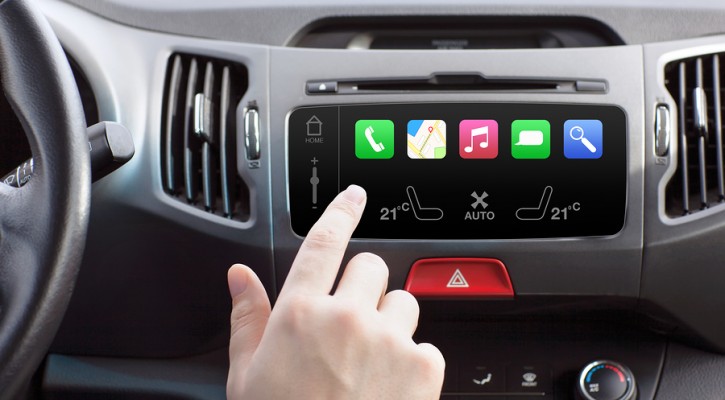
Computer Display Screens In Cars Add To Distractions
July 8, 2015
Computer display screens that automakers are adding to their new models are going to add to the distractions on the road according to experts. The screens, which are tablet size, are supposed to fulfill all the functions of a smartphone.
Both Google and Apple are making built-in computer display systems for cars and automakers seem to be rushing to get them installed and out to potential buyers. According to the automakers, it’s what the customer wants.
Google is producing an Android based system called Android Auto and Apple is producing an iOS operated system they’re calling Apple CarPlay. Both systems are designed to sync with and provide all of the features available in a smartphone including, email, twitter, streaming music and maps. Other apps are also available and more are sure to be added as time goes on.
The computer makers claim that the built-in display screens, some of which feature no-touch and voice activated controls are safer for drivers to use than trying to get all the same information while holding a phone. That may be true in some cases but only to a small degree.
Using these display screens will still require a driver to look away from the road ahead and look at the screen, even if only for a couple of seconds. At 45 mph, a car will travel 132 feet in two seconds and a lot can happen in that distance and time.
According to researchers, voice-activated systems aren’t that safe. Studies have shown that a voice activated system like Siri can cause even more distraction than a hand-held phone. Part of the distraction comes from the frustration of dealing with a voice-activated system that doesn’t understand what you want or displays the wrong information.
When it comes to voice activated texting, researchers in Texas found that, if a driver chose to visually verify the contents of a text, the voice activated systems offered no safety advantage over manual texting.
The problem comes in the skills and brain functions needed to drive. Those are:
- Visual – Keeping your eyes on the road ahead and watching for signals or potential hazards.
- Manual – The manual act of steering and operating the pedals.
- Cognitive – Using your mind to interpret what you are seeing and to make minor or major changes in steering, speed, or both depending on what’s happening on the roadway.
All three of these skills and functions must act together in order to drive safely. If one or more are involved in another activity, driving becomes much more dangerous:
- Whether using hand-held phones or built-in display screens, to make choices, your vision is focused on the display screen and not the road ahead.
- While formulating a response to a text message or carrying on a phone conversation, your cognitive abilities are tied up in the act of texting or listening to the other person and your ability to make rapid decisions regarding the traffic situation is diminished.
- When waving your hand over a display screen to look for or make a music selection, you’re using all three of the functions and skills that should be focused on the very important job of driving.
Many drivers will find, much to their regret, that these display screens don’t add any appreciable degree of safety and they may make the road much more dangerous.
Read more: Car dashboards that act like smart phones raise safety issues
